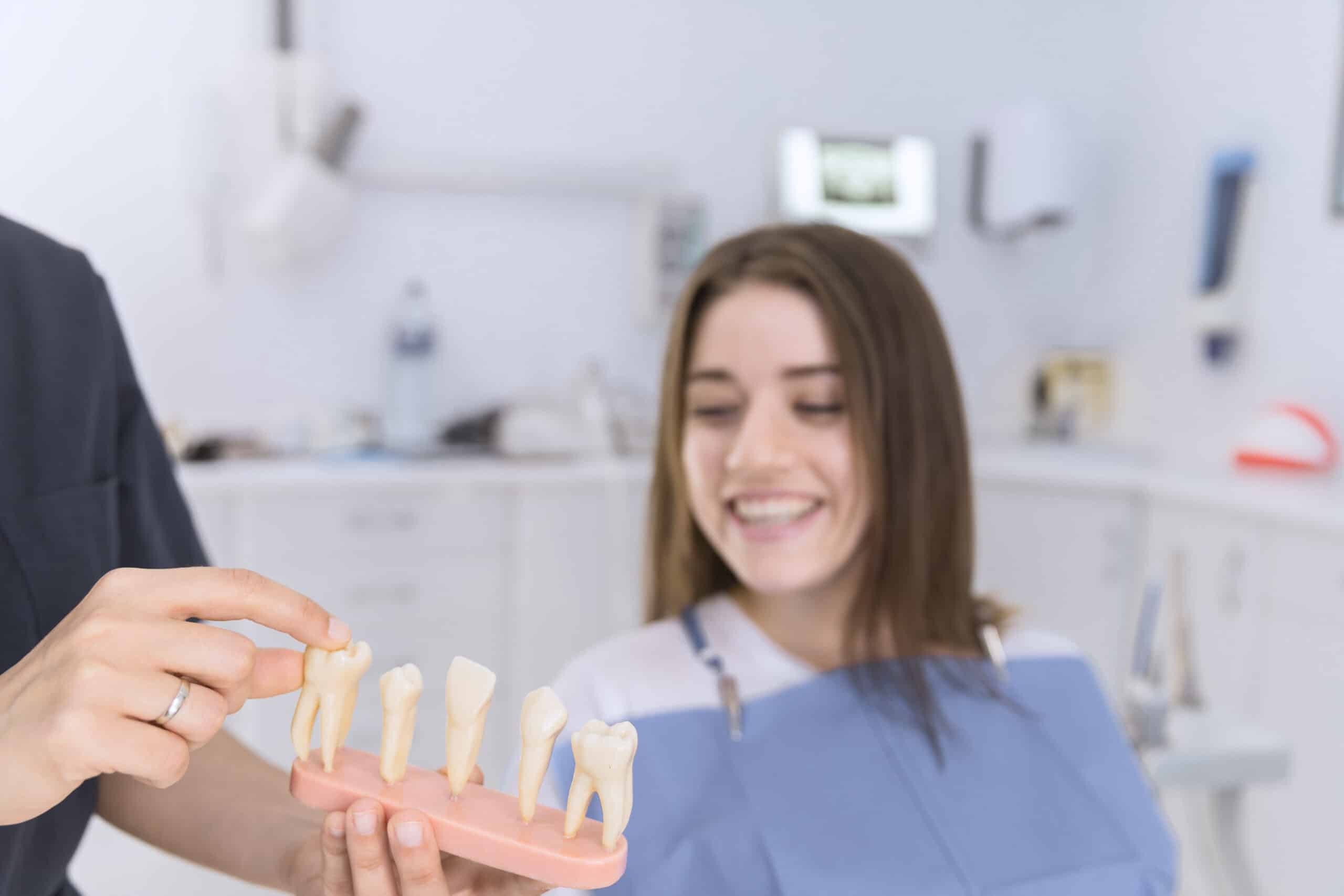We are not a registered Medicare/Medicaid Provider

Welcome to our blog, where we dive into the world of oral hygiene and share tips from a trusted general dentist. We all know that maintaining good oral health is crucial, but have you ever wondered why? In this article, we will uncover the importance of oral hygiene and provide expert advice on keeping your teeth and gums in tip-top shape. So sit back, relax, and get ready to flash that dazzling smile confidently!
Why Is Oral Hygiene Important?
Why is oral hygiene important? Well, let’s start with the basics. Our mouth is home to millions of harmless bacteria, while others can wreak havoc on our teeth and gums if given the chance. Poor oral hygiene allows these harmful bacteria to thrive, leading to dental problems.
First and foremost, practicing good oral hygiene helps prevent tooth decay. When we consume sugary or starchy foods, the bacteria in our mouth produce acids that attack the enamel on our teeth. Over time, this can lead to cavities and tooth decay.
Furthermore, proper oral care keeps gum disease at bay. Neglecting your dental health can result in gingivitis – an early stage of gum disease characterized by swollen and bleeding gums. Left untreated, it can progress into periodontitis, causing bone loss and even tooth loss.
But it doesn’t stop there! Maintaining good oral hygiene also contributes to overall well-being. Research has linked poor dental health to systemic diseases like cardiovascular disease and diabetes.
In short, investing time in brushing twice a day using fluoride toothpaste will help keep your teeth strong and healthy, while regular flossing removes plaque buildup between your teeth – preventing gum disease from taking hold.
Some Tips From A General Dentist For Maintaining Good Oral Hygiene
Maintaining good oral hygiene is essential for keeping your teeth and gums healthy.
Regular Brushing: First and foremost, brushing your teeth at least twice a day is crucial. Use a soft-bristled toothbrush and fluoride toothpaste to remove plaque and bacteria from your teeth. Don’t forget to brush your tongue as well, as it can harbor harmful bacteria.
Flossing: Besides regular brushing, flossing should be integral to your oral hygiene routine. Flossing helps remove food particles and plaque from between the teeth, where the brush cannot reach easily. Make sure to floss gently but thoroughly, not injuring your gums.
Using Mouthwash: Rinsing with an antimicrobial mouthwash can further enhance your oral hygiene routine by reducing bacteria in the mouth and freshening your breath. Choose a mouthwash that contains fluoride for added protection against cavities.
Balanced Diet: Don’t underestimate the importance of maintaining a balanced diet for good oral health. Avoid sugary snacks and drinks as they contribute to tooth decay. Instead, choose nutritious foods like fruits, vegetables, lean proteins, and dairy products that provide essential vitamins and minerals for strong teeth.
Regular Check-Ups: Don’t skip regular dental check-ups! Seeing a general dentist every six months allows for early detection of potential issues before they become more serious problems.
By following these tips from a general dentist on maintaining good oral hygiene practices consistently, you’ll be on track toward achieving optimal dental health!
How Often Should You See A Dentist?
Regular dental check-ups are crucial to maintaining good oral hygiene and overall health. But how often should you see a dentist? The frequency of dental visits can vary depending on individual needs, but as a general rule, visiting your dentist at least twice a year is recommended.
During these routine check-ups, your dentist will thoroughly examine your teeth and gums, looking for any signs of decay or gum disease. They may also take X-rays to detect hidden issues that cannot be seen with the naked eye. Additionally, professional cleanings performed by a dental hygienist help remove plaque and tartar buildup that regular brushing and flossing might miss.
For some individuals with specific oral health concerns or conditions such as periodontal disease or diabetes, more frequent visits may be necessary. Your dentist will determine the appropriate schedule for your unique situation based on their findings during each visit.
Visiting your dentist regularly can identify potential problems before they become more serious and costly. Regular check-ups also allow dentists to educate patients about proper oral care techniques tailored to their specific needs.
Remember that prevention is key when it comes to maintaining good oral health. So don’t neglect those routine dental appointments – they are essential in keeping your smile healthy and bright!
What Are The Consequences Of Poor Oral Hygiene?
Neglecting oral hygiene can lead to a host of consequences that go beyond just bad breath and yellowed teeth. Poor oral hygiene can have serious implications for your overall health.
When plaque builds up on the teeth and gums, it creates an ideal environment for bacteria to thrive. This can result in gum disease, also known as periodontal disease. Gum disease starts with minor symptoms like redness and swelling, but if left untreated, it can progress to more severe issues such as receding gums, tooth loss, and even bone loss.
But the negative effects don’t stop there. Research has shown that poor oral hygiene is linked to other systemic health conditions such as heart disease, diabetes, respiratory infections, and pregnancy complications. The mouth is a gateway to the rest of our body; maintaining good oral hygiene is crucial for overall well-being.
In addition to these physical consequences, poor oral hygiene can have social and emotional impacts. Chronic bad breath or stained teeth may affect one’s self-esteem and confidence levels in social interactions. It’s not just about having a healthy smile but feeling good about yourself, too.
Given all these potential consequences of neglecting oral hygiene, it becomes clear how important it is to prioritize regular brushing and flossing and routine visits to your general dentist. Taking care of your teeth goes beyond aesthetics – it plays a vital role in preserving your dental health and overall well-being.
Remember: prevention is always better than cure when maintaining good oral hygiene!
Maintaining good oral hygiene is crucial for overall health and well-being. By following the tips a general dentist provides, you can ensure that your teeth and gums stay healthy for years.
Remember that prevention is always better than cure for dental problems. So, prioritize oral hygiene daily to enjoy a lifetime of healthy smiles!
If you have any concerns or questions about maintaining good oral hygiene or need professional dental care, don’t hesitate to consult with a trusted general dentist who can provide personalized advice tailored to your specific needs. Your smile deserves the best care possible!



